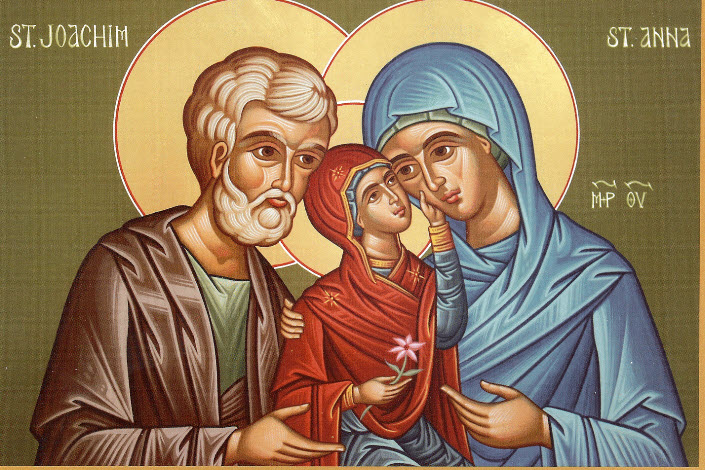This week the Church reflects on the value of the elderly in our communities, especially our grandparents. Last Sunday (August 23) was a day in which we were encouraged to take stock of the older generation and their contribution to our lives, both at an individual and personal level, and at a societal level. And the image that is meant to help us in this regard is found in the feast of Saints Joachim and Anne which we celebrated on Wednesday.

Virtually nothing is known about the details of their lives as they are not even mentioned in the New Testament, though there are many legends that have grown up around them over the years. In the liturgy, they are described as the parents of Mary, but oddly there is no mention of their being grandparents of Jesus. In fact, grandparents get hardly any attention in the Bible, where family tends to be seen in terms of two generations, viz. parents and children.
The fourth commandment tells us to honour our parents, not our grandparents or great-grand parents! St Paul, in his advice to families, talks mostly of relationships between husbands and wives or between parents and children. Perhaps there is a simple historical explanation for this insofar as life expectancy in the ancient world tended to be short, with the implication that children didn’t get to see much of that older generation?
In today’s society and Church however, we are much more aware of an extended family, covering a number of generations, and grandparents are, ironically, coming into their own more and more as child minders, since parents are often forced to go to work to support their family.
It follows that we need to discern in a deeper way the nature of intergenerational love, that love which passes up and down from children to grandparents, and including other relationships too, for example aunts and uncles (some of whom may be single people). I like to think of this in the light of that old biblical image of Jacob’s Ladder (Gen 28-10:22), where the patriarch had a dream in which he saw angels travelling up and down the ladder joining earth and heaven.
Could we not see the generations making up the family as such a ladder, a ladder of love in which each rung we ascend is a relationship; parent and child, siblings, and grandparents relating to two generations. Ideally, each relationship should provide a firm stepping point as we climb higher and higher to approach God’s love at the very top.
But, of course, families are rarely ideal, and often the rungs of the ladder are weak and can give way under the weight of conflict. Then we hope in falling to land on another, firmer, rung which will bear us up until we recover and start to climb again.
We could also see this love between the generations in terms of a school. The family is the school where we learn what love is in often painful practice, for in the family we can experience the agony and the ecstasy of different human relationships. Children and young people learn from the example of parents, aunts, uncles, and especially good grandparents who are frequently the grand masters and mistresses in the school of love because of their accumulated wisdom and mature character.
I have, sadly, come across young people deeply wounded by the ways in which their parents have treated their own parents, the grandparents. We need to hold in prayer these days that middle generation of parents who are so often caught in the sometimes-unbearable tension between caring for their parents and their children.
The Word of God says little explicitly about these stresses and tensions between generations, but the law of love is still the bedrock of our faith and we must turn to the Holy Spirit to help us broaden our perspective on family in its different generations, for it is the family after all that is the real ladder to heaven and the most basic school of love.
What use is it to love strangers and enemies, when, as Jesus says (Mt 10:36), your enemies may be those of your own household!
Kieran Cronin OFM
